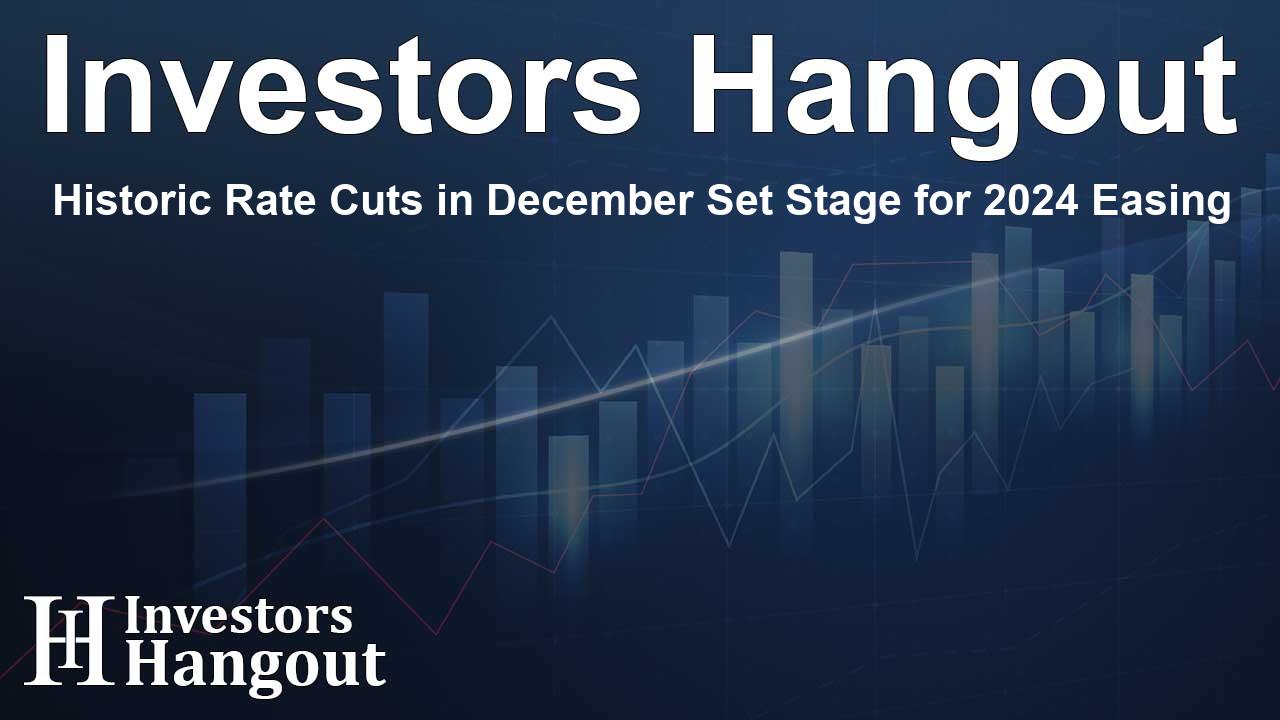Historic Rate Cuts in December Set Stage for 2024 Easing

Historic Rate Cuts Signal Major Economic Shifts
Recent decisions from key central banks signify a momentous shift in monetary policy that may alter the economic landscape heading into 2024. December witnessed substantial interest rate cuts, representing the largest push for easing since the early days of the COVID-19 pandemic in 2020.
December Rate Cuts Overview
Among the world's ten most widely traded currencies, a notable trend emerged as five of the nine central banks that convened in December opted to lower their interest rates. The Swiss and Canadian central banks took decisive action by cutting rates by 50 basis points (bps), while the Federal Reserve, the European Central Bank, and Sweden's Riksbank implemented smaller reductions of 25 bps.
Global Reactions to Policy Changes
In contrast, other central banks, including those in Australia, Norway, Japan, and Britain, chose to maintain their existing rates. Meanwhile, New Zealand also decided not to hold a meeting during this period.
2024 Economic Outlook
The backdrop of these adjustments is characterized by a mix of uncertainty and anticipation. Analysts are particularly focused on the upcoming transition in political leadership in the U.S., with expectations about economic policies creating a ripple effect on global markets.
Significant Rate Adjustments
December 2023 marked a significant milestone, recording the highest number of rate cuts in the G10 countries since March 2020. Overall, the cumulative rate cuts for 2024 have reached an impressive 825 bps, the most extensive annual easing since 2009.
Analysis from Financial Experts
According to financial strategist Henry Allen, 2024 demonstrated resilience with strong asset returns and unexpected economic growth, finally prompting central banks to act by reducing rates.
Emerging Markets Respond
The landscape in emerging markets illustrates further activity. Out of 18 developing economies surveyed, 14 convened for rate-setting sessions in December. Countries such as Turkey made notable cuts, reducing rates by 250 bps, while others, including Mexico, Colombia, Chile, and the Philippines, implemented 25 bps cuts.
Contrasting Approaches in Economics
In a stark contrast, Brazil initiated a tightening phase, increasing its key interest rates by 100 bps, reflecting a more cautious approach amid diverse economic conditions.
The Bigger Picture for 2024
The actions taken in December have collectively fueled a robust total of 2,160 bps in cuts across the emerging market sector. This marks an increase from 945 bps in the previous year, showcasing a dynamic shift in global monetary strategies.
Conclusion: A Year to Remember
John Plassard from Mirabaud highlights the year that has passed as one of transformation, emphasizing that ongoing efforts to tackle inflation and stabilize markets must coexist with the volatility witnessed in energy markets and differing economic dynamics worldwide.
Frequently Asked Questions
What prompted the recent rate cuts in December?
The primary drivers behind the December rate cuts were the need for economic stabilization and the differing inflation rates across economies, particularly amid global uncertainties.
How significant were the rate cuts compared to previous years?
December marked the most extensive monthly total of rate cuts since March 2020, with the annual total for 2024 hitting 825 bps, making it the largest easing effort since 2009.
What implications do these cuts have for the global economy?
The cuts are likely to influence borrowing costs, stimulate spending, and provide stability to markets as policymakers navigate post-pandemic recovery efforts.
Which major economies held meetings during December?
Key economies such as the U.S., Canada, Switzerland, and several emerging markets held rate-setting meetings that led to various outcomes regarding interest rates.
How are emerging markets responding to these policy changes?
Emerging markets demonstrated active responses, with numerous countries implementing rate cuts, while others, like Brazil, adopted more restrictive measures to address inflation.
About Investors Hangout
Investors Hangout is a leading online stock forum for financial discussion and learning, offering a wide range of free tools and resources. It draws in traders of all levels, who exchange market knowledge, investigate trading tactics, and keep an eye on industry developments in real time. Featuring financial articles, stock message boards, quotes, charts, company profiles, and live news updates. Through cooperative learning and a wealth of informational resources, it helps users from novices creating their first portfolios to experts honing their techniques. Join Investors Hangout today: https://investorshangout.com/
Disclaimer: The content of this article is solely for general informational purposes only; it does not represent legal, financial, or investment advice. Investors Hangout does not offer financial advice; the author is not a licensed financial advisor. Consult a qualified advisor before making any financial or investment decisions based on this article. The author's interpretation of publicly available data shapes the opinions presented here; as a result, they should not be taken as advice to purchase, sell, or hold any securities mentioned or any other investments. The author does not guarantee the accuracy, completeness, or timeliness of any material, providing it "as is." Information and market conditions may change; past performance is not indicative of future outcomes. If any of the material offered here is inaccurate, please contact us for corrections.